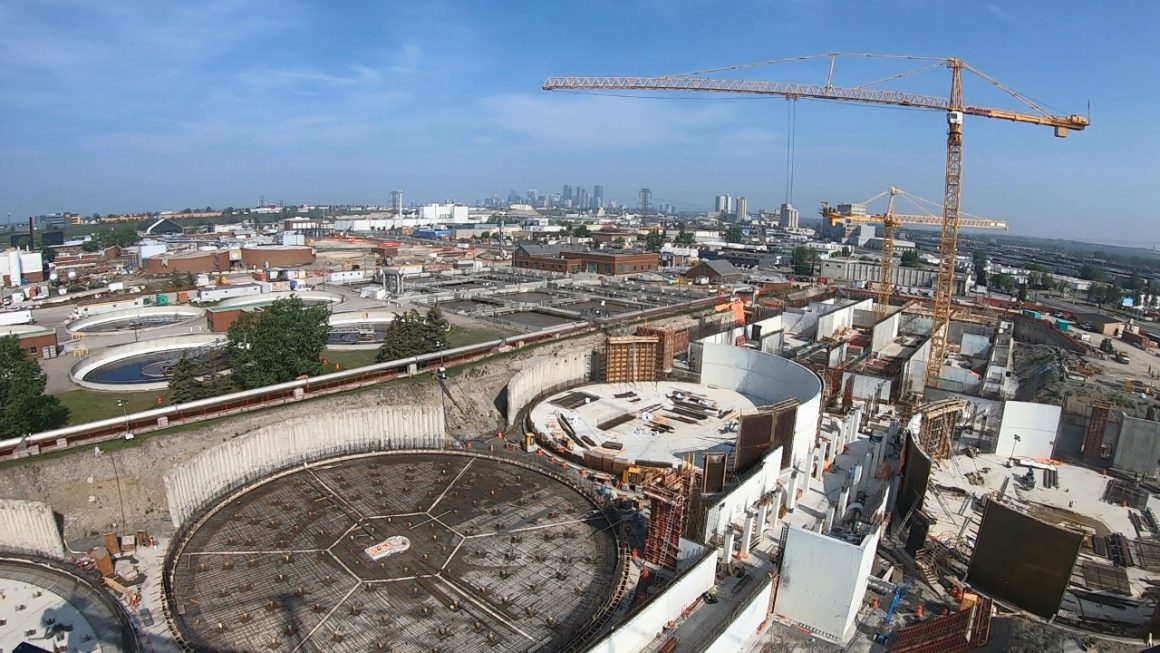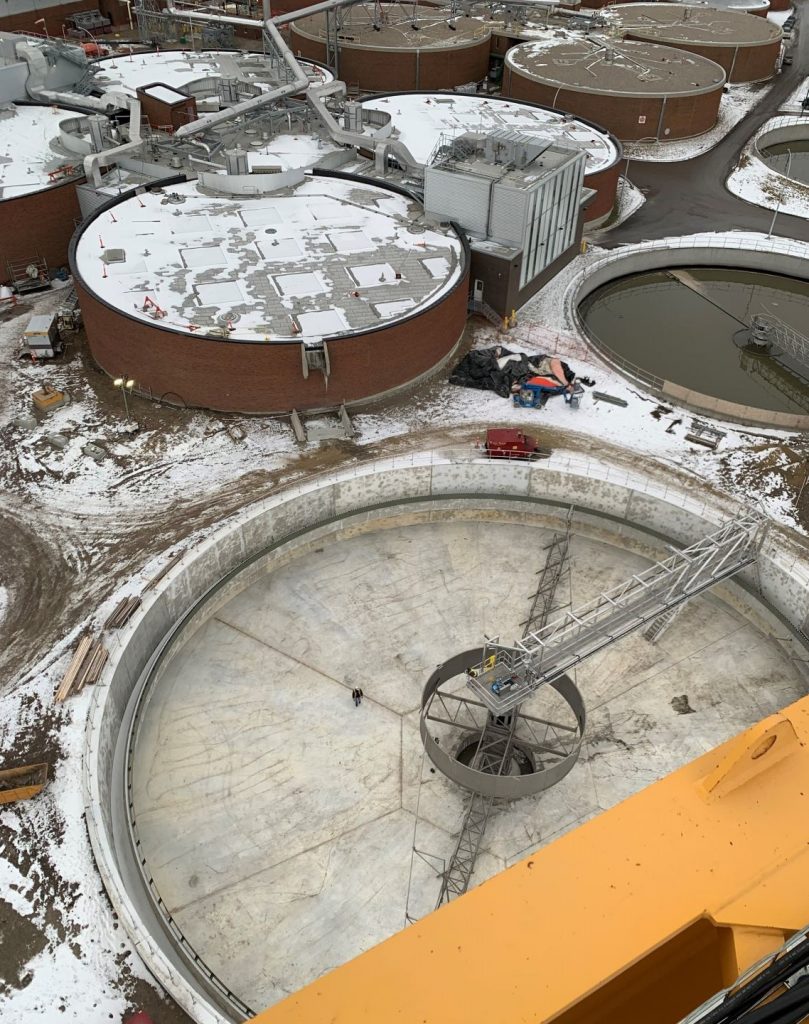
Wastewater testing program launched to monitor COVID-19 levels
By Pamela Freeman, October 1 2021—
In the current Government of Alberta COVID-19 measures, outbreak monitoring and management are adjusting to focused, local settings. As a part of this, a wastewater testing program is in the works to provide data on coronavirus levels at a community level and act as a warning indicator for an increase in infections.
A collaboration between the University of Calgary’s Cumming School of Medicine, Faculty of Science and Schulich School of Engineering, as well as Advancing Canadian Wastewater Assets (ACWA), the City of Calgary and Alberta Health Services, monitors SARS-CoV-2 RNA in wastewater and shares the findings as part of a larger COVID-19 Data Tracker presented by the Centre for Health Informatics.
It is only with a multifaceted, interdisciplinary group that such monitoring can be done. A fieldwork team from the University collects samples from select sites of Calgary’s wastewater management system and delivers them to the ACWA lab. Here, processing is done to clean and concentrate the samples. Then, they are sent to Foothills campus where the concentration of SARS-Cov-2 RNA, the genetic material of the virus, is determined in each sample.
The SARS-CoV-2 RNA is detected from quantitative reverse transcription-polymerase chain reaction (qRT-PCR) – a procedure that develops a DNA strand complementary to the RNA and amplifies it for detection. The genetic material can be detected for weeks, however, the concentrations across patients and infection stages will vary. Thus, results from RNA testing cannot give exact information on the prevalence of COVID-19 in a region.
The COVID-19 Data Tracker displays the concentration of SARS-Cov-2 RNA in wastewater by location, sharing results from Calgary’s three wastewater treatment plants as well as from select communities across the city. The results are also shown across time and compared to the implementation of different public health measures.

Wastewater testing, over its history in Calgary, has been shown to predict rises in diagnosed cases, suggesting it is an effective tool in monitoring COVID-19. It has also been in use around the world, with researchers consistently finding that detections closely link to case patterns.
This wastewater monitoring technique has been used for decades — including for poliovirus and hepatitis A virus. It was first seen early in the pandemic that SARS-CoV-2 RNA was detectable in fecal matter from COVID-19 patients.
The collection of wastewater from toilets, sinks and bathtubs in shared sewage pipes allows for a comprehensive sample of an entire community or a specific setting, such as a hospital, a meat-packing plant or a prison. This method of testing is also valuable as it avoids biases of other indicators — removing issues such as discrimination in access to healthcare or privacy concerns and capturing both symptomatic and asymptomatic cases. There is also no indication that COVID-19 may be transmitted through wastewater.
A University of Calgary news release is optimistic for the potential of wastewater testing in Alberta’s COVID-19 response. The City of Calgary has previously been supportive of this kind of research to support public health. While the Government of Alberta has not released its full program plan, wastewater samples can be used as a non-invasive, targeted, low-cost and predictive tool for outbreak monitoring and management moving forward.
Extensive information about wastewater testing can be found at the University of Calgary. For more COVID-19 data in Alberta, see the Centre for Health Informatics website. For more on COVID-19 public health action, see the Government of Alberta website.
